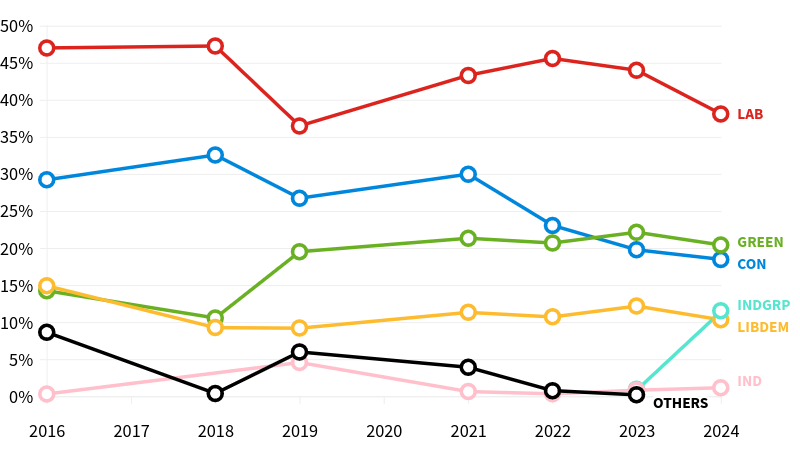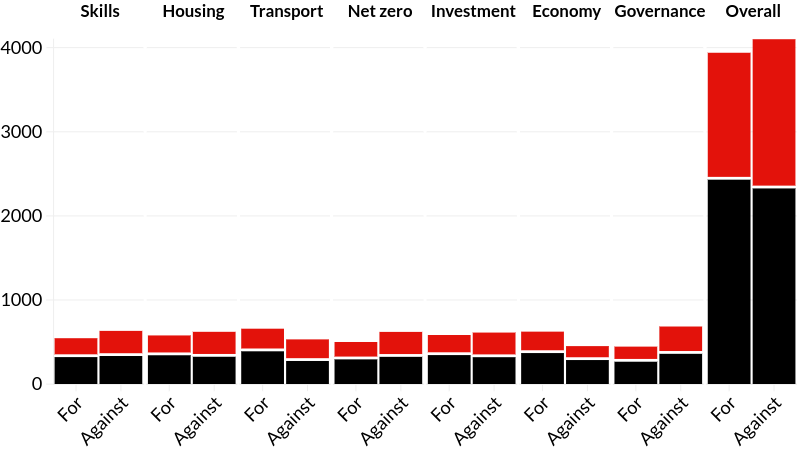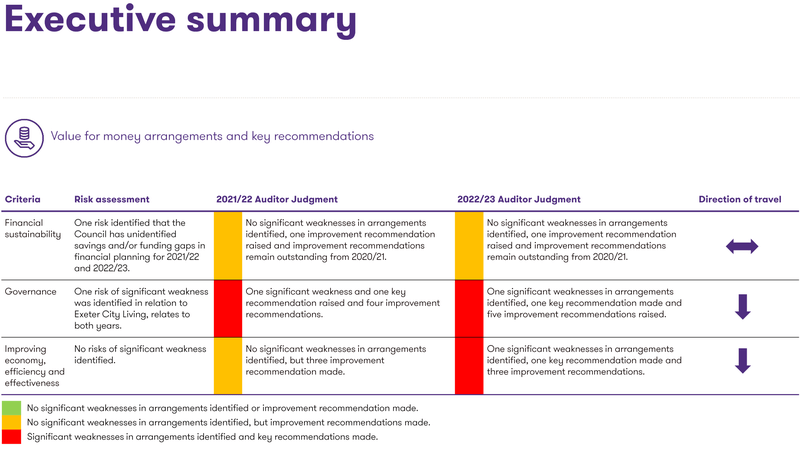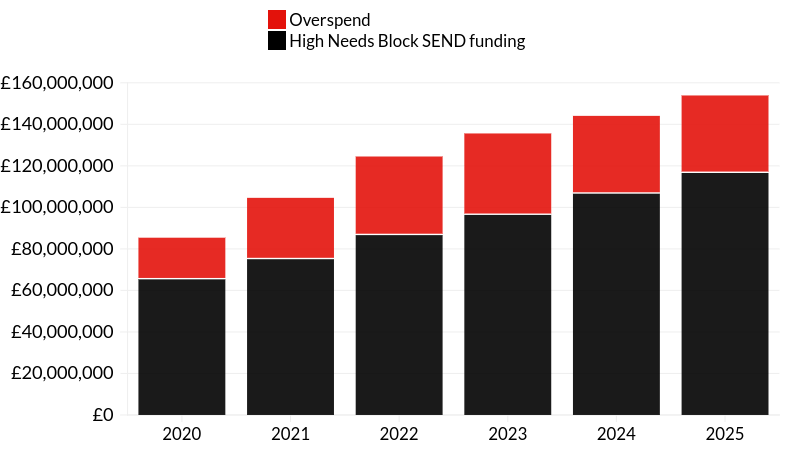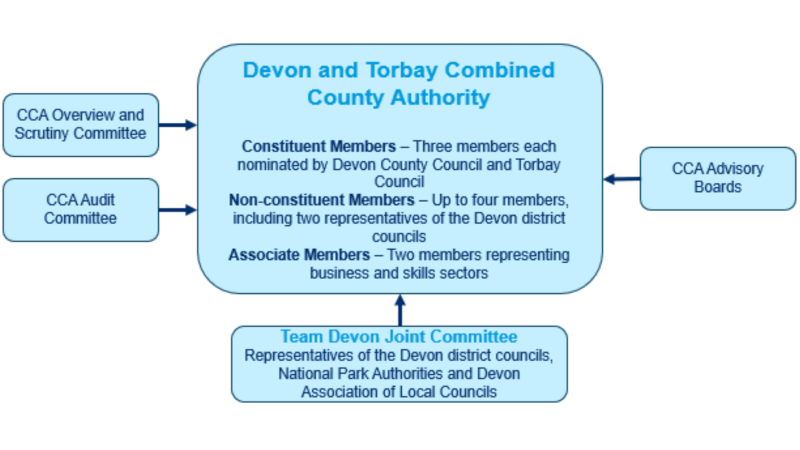Exeter City Council’s chief financial officer, Dave Hodgson, told a meeting of the council’s audit and governance committee on 4 December 2019 that the external auditors, Grant Thornton, had not yet provided their opinion on the council’s 2018/19 accounts even though the deadline for doing so was 31 July 2019.
Without that opinion, the accounts could not be approved formally and then published, thus delaying public scrutiny of the council’s financial affairs.
The delay also prevents the government from completing the national Whole of Government Accounts which give a comprehensive annual accounts-based picture of the financial position of the UK public sector. Insufficient staff resources at Grant Thornton was the cause.
Mr Hodgson added that the delays by Grant Thornton meant that Exeter City Council finance staff were having to spend time on the previous year’s accounts when they should be concentrating on budget planning for the 2020/21 year, which starts in April.
The council is also incurring extra costs by having to convene a special meeting of the audit and governance committee in January to approve the accounts.
In addition, the situation had created a risk of damage to the council’s reputation because only the small minority of people familiar with the audit procedures would realise that the delay was caused by the external auditors and not by the council itself.
The same issue has arisen on the other side of the M5 where East Devon District Council’s accounts were delayed by the same audit firm, Grant Thornton, though less severely than Exeter’s have been.
Despite a report to the East Devon committee making clear that the auditor’s failure to meet the 31 July deadline was down to a “lack of [auditor] staff resources”, Grant Thornton added extra fees to their bill due to “delays caused by council staff availability delaying the start of our interim audit”. Unsurprisingly, the council challenged this.
Similar problems have occurred across the country. More than 40% of audit opinions were not available by 31 July 2019, up from 13% the previous year, although it is important to note that some of these audits relate to police and fire authorities as well as councils.
By 31 October 2019 the position had improved, though a quarter of audit opinions had still not been received:
| Appointed auditor | Delayed audit opinions at 31 July 2019 | Delayed audit opinions at 31 October 2019 |
|---|---|---|
| BDO | 13 | 9 |
| Deloitte | 18 | 15 |
| Ernst & Young | 90 | 62 |
| Grant Thornton | 70 | 25 |
| Mazars | 17 | 8 |
| Total delayed | 208 | 119 |
| Total commissioned | 486 | 486 |
Source: Public Sector Audit Appointments Ltd
To shed some light on how local government auditing reached this unhappy state, it is necessary to go back to the election of the Conservative-led coalition government in 2010.
One of the Conservative Party’s priorities at the time was “Localism” which, in practice, meant removing as many elements of central control over local government as possible, provided doing so was consistent with retaining sufficient power in Whitehall to impose austerity-driven policies.
One seemingly quick win was the decentralisation of the local government audit function, which had been controlled from the centre since 1983 by the Audit Commission. In ministers’ eyes, this scored well not just on localism, but also on increasing opportunities for private sector auditors in the local government market, on creating competition between firms to drive audit prices down and on making further expenditure savings by abolishing the commission and its overheads.
The abolition announcement was made on 13 August 2010, a mere three months after the general election and while Parliament was still in summer recess. The new language of government was exemplified by the Secretary of State, Eric Pickles MP, who described the commission thus: “rather than being a watchdog that champions taxpayers’ interests, it has become the creature of the Whitehall state”.
Although it took until 2014 to pass the legislation to shut down the commission, the development of arrangements to replace it proceeded in the meantime. Despite the validity of some prior criticism of the commission, many commentators considered what happened subsequently as a triumph of dogma over good planning and risk management.

For anyone wanting an incisive analysis of the coalition’s local government auditing reforms, a recent paper commissioned by the House of Commons Housing Communities and Local Government Committee and written by Professor Laurence Ferry of Durham University makes some key points that illuminate Exeter City Council’s predicament.
First, the Local Government Association set up an arms-length body, Public Sector Audit Appointments Ltd (PSAA), supposedly to help local government bodies appoint auditors. In practice PSAA rapidly became a near-monopoly supplier of auditors to local government, setting standard fees for each authority based on the work needed to deliver an audit opinion in line with agreed professional standards. 98% of local government auditors are now supplied through PSAA.
Second, fee income from audits has fallen significantly, though some of this reflects prescribed reduced auditing activity, such as a move away from value-for-money studies. Professor Ferry’s report notes that the average standard fee across England fell from above £200,000 in 2010 to £60,000 by 2018. PSAA’s fee-setting process has had the following effects in Exeter and East Devon:
Third, only two of the “Big Four” audit firms continue to deliver local government audits via PSAA: Deloitte and Ernst & Young. Of the others PWC has not bid for work while KPMG did so for 2018/19 but failed. Only three other firms are engaged in local government audits, which contrasts with nine private sector firms in the days of the Audit Commission.
This scenario goes a long way to explaining why firms like Grant Thornton have struggled to complete their contracted work on time.
The firm said in a statement: “There are significant pressures facing the auditing profession at the current time due to a combination of increased regulatory scrutiny, the challenges of recruiting and retaining staff across the country and the increasing complexity and quality of draft accounts.
“Local government auditors are now working in a different and more challenging environment to 2017, when the last audit tenders were made, which is contributing to delivery challenges within all firms.
“Exeter City Council published a statement on its website in July which outlined the impact of resourcing on the progression of the council’s audit. We are currently working with the council to conclude the audit in the next few weeks.”

This is doubtless true. But as a member of Exeter City Council’s audit and governance committee pointed out, it does not explain why the audit firms continue to bid for work for which the fees, by their own admission, are now insufficient. Perhaps they are trying to build a track record that will stand them in good stead for whatever new audit regime comes next?
For there will indeed be changes, given the extent of concern about the present arrangements. For example, the PSAA’s chief executive, Tony Crawley, summarised his views in a blog post in January 2019:
“Whilst our contracts ensure that the firms are remunerated at the level of their bids, and the majority of S151 officers think the audit fee is now about right, we are conscious that there is a perception of a risk to audit quality resulting from the new prices.
“There is no doubt that audit fees have reduced significantly, and typically are now 35% of their 2012 levels in absolute terms following successive reductions of 40%, 25% and for 2018/19 onwards, a further 23%.
“Whilst a large chunk of the earlier reductions were down to eliminating Audit Commission central costs and changes to the work requirements, the reductions are now substantially due to our suppliers reducing their prices for delivering audits that meet the scope of the Code of Audit Practice requirements, including the auditing standards.”
This followed Sir John Kingman’s 2018 review of the Financial Reporting Council which noted that the PSAA was focussed on the costs of audit, concluding that “these arrangements, in practice, may well be prioritising a reduction in cost of audit, at the expense of audit quality”. And it preceded the July 2019 announcement of a review into the quality of local government audits, the final report from which is due in March 2020.
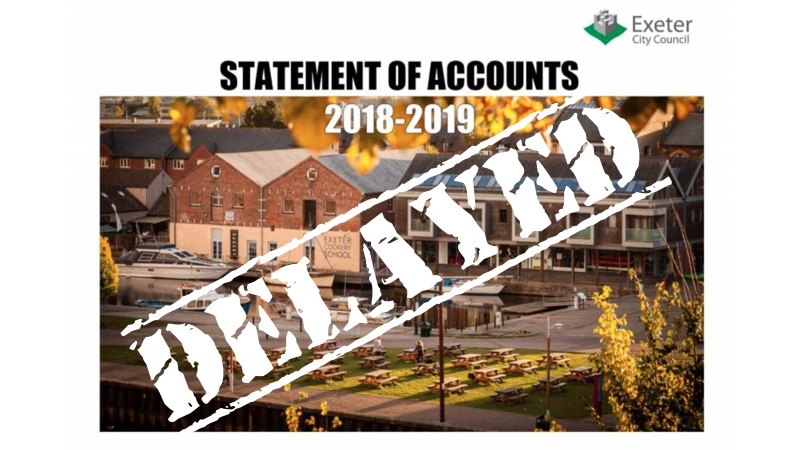
So, apart from the presumably unintended consequences of disruption to local authority finance departments, how does the reform score against other expected benefits? Not too well is the answer.
First, it had limited impact on Localism. The change removed the heavy hand of the Audit Commission, but has not given councils any meaningful new freedoms, given that almost all of them are saving time and effort by going through the PSAA appointments system.
Second, it failed to create increased opportunities for private sector auditors in the local government market. As Professor Ferry points out: “The new audit regime has failed to increase audit market competition for local government, which now has actually fewer suppliers including fewer Big Four firms, than prior to the reforms.
“There are now only five firms providing public audit services to local government, rather than ten under the Audit Commission regime (including its own District Audit Service). The situation is arguably an oligopoly.”
Third, the aim of creating competition between firms to drive down audit prices was achieved, but by other means. Some have withdrawn from the market, as the reform was always going to be a tough sell to firms who live or die by fee earnings, and it has been PSAA rather than competition that has driven fees down.
Nevertheless, some expenditure savings were made by abolishing the Audit Commission and its overheads, as noted by Tony Crawley above.
However, the government’s August 2010 announcement had little to say about audit quality other than that the changes would “maintain auditing standards”. The evidence suggests that even this modest ambition has not been achieved.
Audit firms are not charities. If a piece of fee-earning business is not going to show a profit in the long run, these firms will either make savings by cutting the amount of work done or by handing it over to more junior and less experienced, which is to say cheaper, staff.
Meanwhile, back in Exeter, Dave Hodgson has been left to find staff time both to finish the audit and to make financial plans for 2020/21.
